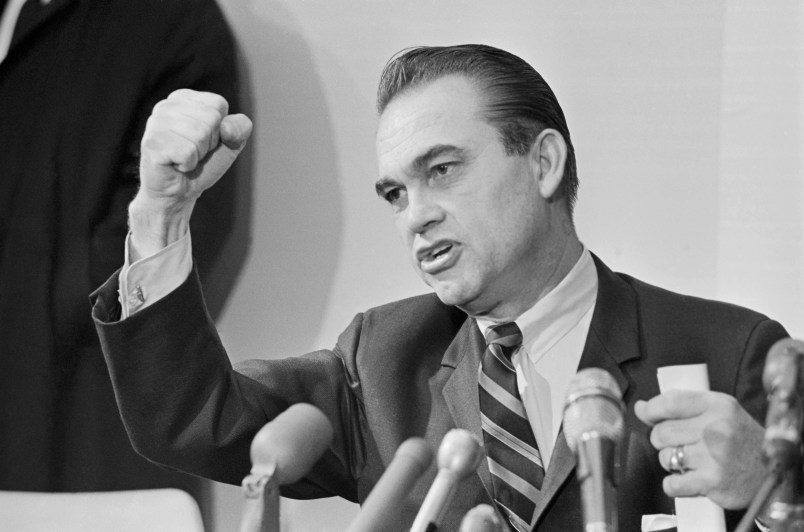I keep seeing comparisons between Trump’s racial appeals and George Wallace’s 1968 campaign. Here’s the AP’s Steve Peoples and Zeke Miller: “Not since George Wallace’s campaign in 1968 has a presidential candidate — and certainly not an incumbent president — put racial polarization at the center of his call to voters.” Someone here can correct me if my memory is failing me, but in 1968, Wallace did not make explicit racial appeals.
Wallace talked about state’s rights and the ability of “big government” to dictate whether schools should segregate. In his opening appearance in 1967 in Meet the Press, he said he did not favor “segregation in any phase of our society in any state of this union,” but favored the states being allowed to “continue to determine the policies of their domestic institutions themselves.” His voters often understood his appeals in racial terms, but he was careful not to frame his appeal in white vs. black terms.
Trump’s appeal is much more explicit and personal. Wallace, in retrospect, was a conventional politician who reflected and then later rejected the mores of his time and region. Trump is much more of an irresponsible demagogue. He did not rise out of a political movement the way that, say, Hitler or Mussolini did, but is a peculiar product of our celebrity and social media culture. He’s a bad person — a man lacking in conscience — in a way that Wallace, as his turn later against his segregationist past showed, was not.
I have mixed feelings about the politics of this latest outburst: on one hand, it tempts Democrats into an over-reaction, particularly on issues like immigration; on the other hand, it reinforces the aversion of many voters, including erstwhile Republican voters, to having such an individual represent the country as its and their president.






